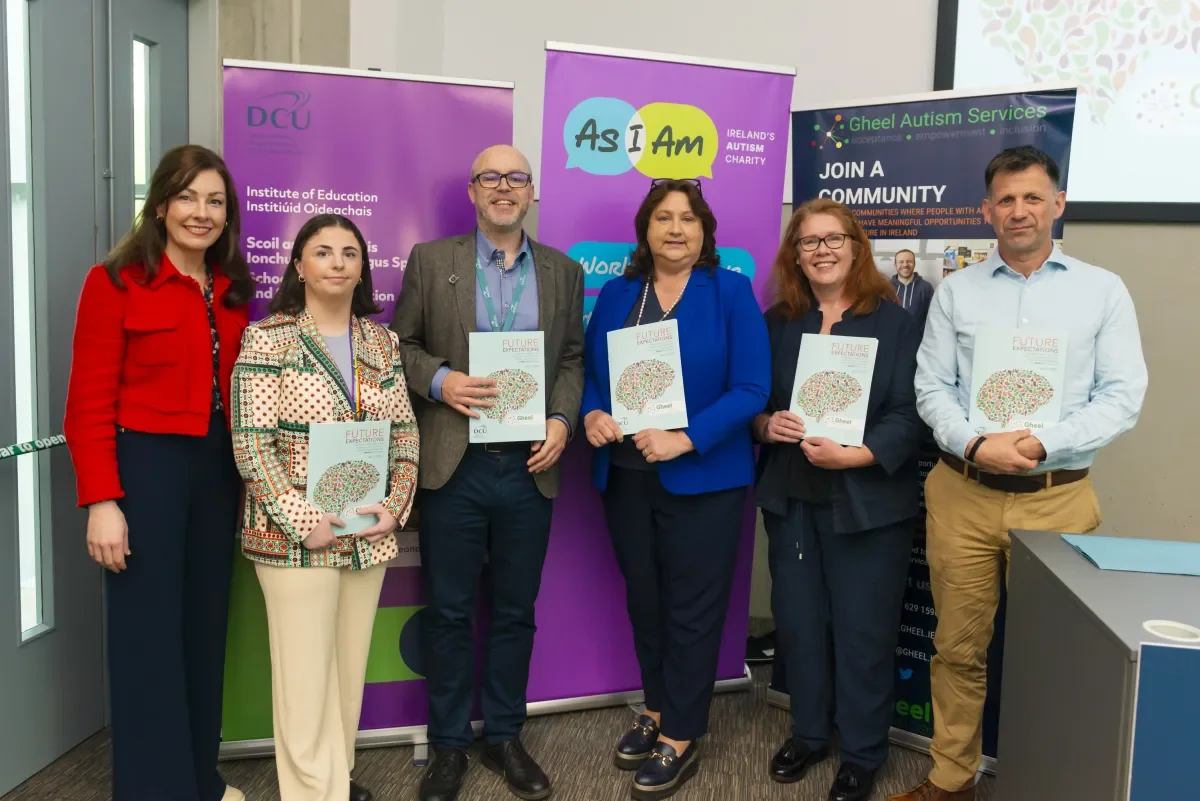

DCU study finds that transition programmes help Autistic people move into the world of work more successfully
A new research study from the Dublin City University Institute of Education has found that transitional programmes can help Autistic people move into the world of work more successfully. The study also analysed the barriers facing Autistic people in achieving and maintaining full-time work. The report was launched at an event on the St. Patrick's campus by Anne Rabbitte TD, Minister of State for Disability in the Dept of Health & Dept of Children, Equality, Disability, Integration and Youth.
The research, entitled “Future Expectations: A Qualitative Exploration of the Perceptions and Expectations of Autistic Adults Regarding the IMPACT Programme”, was funded by The Irish Commission for Human Rights and Equality. It examines the Gheel Autism Services Inspiring Meaningful and Progressive Autistic Career Transitions (IMPACT) Programme which is designed to support a holistic transition for Autistic adults to employment through individualised in-person and online training over six weeks.
The research was carried out using a qualitative approach and a case study methodology to engage Autistic individuals in exploring their experiences, views, and ambitions for accessing employment or educational opportunities. The data collection consisted of one-on-one interviews conducted in person or online with Autistic adults engaged with Gheel or who are past participants of the IMPACT Programme; case study workshops with three past participants of IMPACT; and a focus group and interviews with Gheel staff. The research was carried out between March and July 2023.
Ireland’s overall long-term unemployment rate is currently 1.2%, slightly lower than the OECD average of 1.3%. However, Ireland’s disability employment gap stands at a much higher rate, which stands at 38.6%, comparing unfavourably to, for example, the EU average of 24.4%. The rate of unemployment for Autistic people is particularly concerning, with figures from the CSO showing only 16% of Autistic people are in full-time employment, with 32% engaged in some form of paid work, far below the average population unemployment rate of 4.45% in Ireland in 2023.
The study found that the lack of autism-informed transition and employment supports for Autistic people post school posed a significant barrier, with the transition requiring adapting to new routines and environments, potentially causing anxiety, and disrupting feelings of belonging. Many participants reported that they had not previously held employment roles for any extended duration of time. Many participants also spoke of past workplace experiences marred by social isolation, bullying, and a lack of understanding in both educational and work environments.
The study found that it is important to foreground the voice of Autistic adults on key issues and service design or delivery relevant to their lives. Among the recommendations made by Autistic participants in the study were the need for work placements and practical experience or ‘taster’ work experience in workplaces was emphasised. Participants also suggested mentorship or dedicated supports in a workplace as particularly valuable.
Dr Neil Kenny, co-author of the report, said:
“Ireland’s disability employment gap remains the highest in the EU, at a time where the country is at near-full employment. This gap is even starker when it comes to Autistic individuals. What is clear from this research is that transitionary programmes such as IMPACT can help Autistic people move into the world of full employment if they so choose, and by placing their voices at the centre of these discussions previous barriers can be removed.”
Mick Teehan, Director of Operations at Gheel Autism Services said:
“What we have found is that the IMPACT course participants are far exceeding their own expectations in terms of what is possible for them as they embark on their individual career journeys. Through autism-informed and individualised supports we are now seeing people move into full-time paid employment, adding huge value to their respective employers and, ultimately, achieving financial independence”
The full study is available here.
